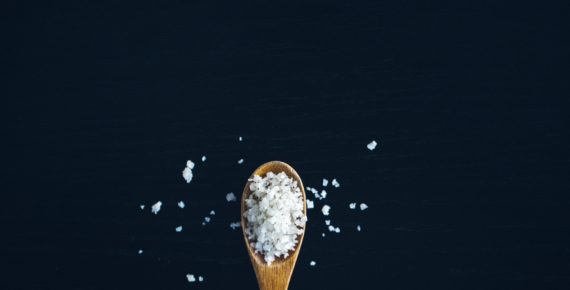
Micronutrients are one of the major groups of nutrients your body needs for a wide variety of different functions. Emphasis is usually placed on vitamins, but minerals deserve a lot more of the limelight. They play an essential role in growth, bone health, muscle contractions, fluid balance, and several other processes, including healthy heart function.
Today, we’re focusing on one mineral in particular that champions heart health – potassium. Let’s zoom in and take a closer look at how it keeps your heart healthy and ticking.
Potassium is a mineral classified as an electrolyte. This simply means that it has a special property that allows it to conduct electricity.
The heart would be in big trouble without the ability to conduct electricity – it requires electrical signals to pump blood around our bodies. When this system malfunctions, it can trigger a sudden cardiac arrest.
Potassium supports the heart in two incredible ways.
1. Strength of muscle contractions
Cast your mind back to the moment your science teacher told you that your heart worked as a muscle. Because potassium affects the nerve signals in the nervous system, healthy levels in your blood are an important component of heart muscle contractions. A weak pulse can cause many other health problems and could even be fatal.
2. Maintain a regular heartbeat
Low levels of potassium in your blood can alter your regular heartbeat. When the heart doesn’t beat properly, it cannot effectively pump blood to the brain, organs, and muscles. If this starts to happen, you could be looking at further health complications. In some cases, it could lead to a sudden cardiac arrest. With the survival rate sitting at 5-10%, the severity of this cannot be underestimated.
The recommended amount of daily potassium is 4,700mg. Sadly, most people get nowhere near this level in their diets.
It doesn’t have to be this way. The good news is that there is an abundance of foods jam-packed with potassium. Word on the grapevine is that bananas are the king of potassium content. Although they’re still a great source of this mineral, these guys are not the potassium superhero we believe them to be.
One medium-sized banana contains 9% of our RDA. A single avocado, on the other hand, has 20% of your daily potassium needs at once, among other health benefits.
Other contenders for the top spot are:
A potassium-rich diet does much more than keep your heart ticking. It’s been shown to help reduce blood pressure and water retention, protect against strokes, and help prevent osteoporosis and kidney stones.
The key to getting enough potassium is to eat a wide variety of plant-based foods every day. Not only will your heart thank you for it, but the array of other health benefits will also put a spring in your step and help you achieve a lifestyle that encourages a long and healthy life.
No matter how well you look after your heart, sudden cardiac arrest can still strike. And when that happens, you’ll want a defibrillator by your side. Investing in just one for your organisation can make the difference between life and death. Whether you would prefer to lease or buy our products, get in touch today on 0333 050 6649 to find out how we can help you.

A defibrillator might not seem like essential office equipment. But in an emergency, they could be the difference between life and death. Due to the growing awareness of the danger of sudden cardiac
Read More
We associate heart problems with poor lifestyle choices – unhealthy diet, lack of exercise, chronic stress – that sort of thing. However, science paints a more complex picture of heart health. Genetics also
Read More
Sudden cardiac arrests (SCAs) are like electrical malfunctions. They happen when the signal to your heart stops. As a result, the heart can’t pump blood to the brain and many fall unconscious. There
Read More
It’s one of life’s unfortunately grim statistics: there are more than 30,000 out of hospital cardiac arrests in the UK each year. Without rapid treatment using CPR and a defibrillator, chances of survival
Read More